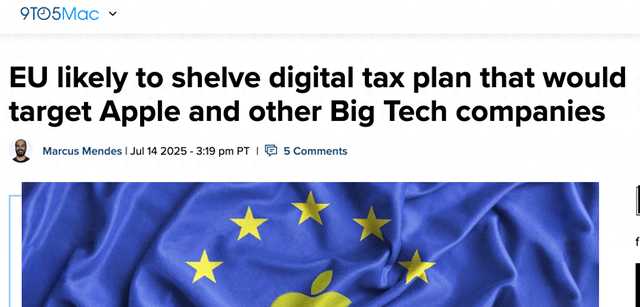Following the news, Apple’s stock rose 1.2% in pre-market trading, and Meta gained 1.8%. Dan Ives, an analyst at investment firm Wedbush, noted: “The EU’s concession removes one of the biggest regulatory risks for the tech industry. Leading companies are expected to accelerate investments in AI and cloud computing in Europe.”
It is learned that the EU will instead raise 25 billion to 30 billion euros annually to repay pandemic debts through new taxes, including a tiered tax on large enterprises with annual turnover exceeding 50 million euros operating in the EU, as well as an electronic waste disposal fee.
This shift reflects the EU’s prioritization of trade cooperation over unilateral tax policies. By shelving the digital tax, it avoids potential retaliatory measures from the U.S., which had previously opposed the plan citing unfair treatment of its tech firms.
The move also adjusts the EU’s revenue structure. While the digital tax was aimed at taxing tech giants’ digital services, the new taxes cover a wider range of enterprises, balancing fiscal needs with efforts to maintain a business-friendly environment for tech investment.










